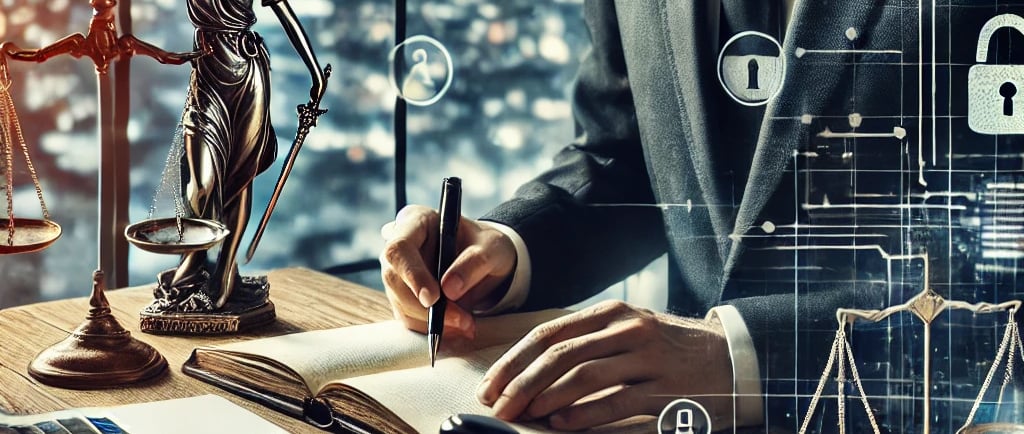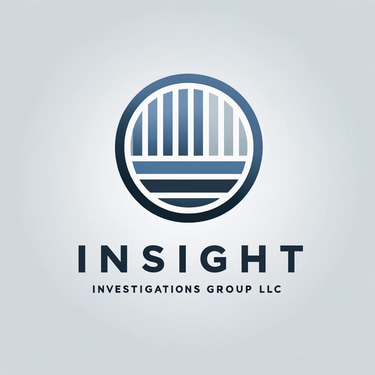The Ethics and Legalities of Private Investigation
"Discover the essential ethics and legalities of private investigation. Learn how confidentiality, integrity, and adherence to privacy laws ensure reliable and ethical surveillance services, background checks, and more. Trust Insight Investigative Group LLC for professional, compliant investigative services."
PRIVATE INVESTIGATION ETHICS PRIVACY


Private investigators play a crucial role in uncovering the truth, gathering evidence, and assisting individuals, businesses, and legal professionals in various matters. However, their work is governed by strict ethical standards and legal regulations to ensure that investigations are conducted responsibly and lawfully. In this comprehensive guide, we will explore the ethical and legal considerations that private investigators must adhere to, providing valuable insights and practical examples to illustrate these principles.
Understanding the Role of Ethics in Private Investigation
Ethics form the foundation of professional conduct for private investigators. Ethical behavior ensures that investigators maintain integrity, respect the rights of individuals, and contribute positively to the justice system. Here are the key ethical principles that guide private investigators:
1. Confidentiality and Privacy
One of the primary ethical obligations of a private investigator is to protect the confidentiality of their clients and the subjects of their investigations. This means:
Respecting Client Privacy: Private investigators must safeguard all information provided by their clients and only disclose it with explicit consent or when required by law.
Handling Sensitive Information: Any sensitive information obtained during an investigation must be handled with the utmost care to prevent unauthorized access or misuse.
Real-life Example: Consider a case where a private investigator is hired to investigate potential corporate espionage. The investigator discovers incriminating evidence against an employee. Despite the pressure from the client's competitors to release this information, the investigator must uphold confidentiality and only share findings with the client, ensuring the investigation remains ethical and lawful.
2. Honesty and Integrity
Private investigators must conduct their work with honesty and integrity, avoiding any deceptive or misleading practices. This includes:
Accurate Reporting: Investigators should provide truthful and accurate reports, avoiding embellishments or omissions that could distort the facts.
Avoiding Misrepresentation: Investigators must not misrepresent themselves or their credentials to obtain information or gain access to restricted areas.
Real-life Example: In a marital infidelity case, a private investigator might uncover evidence of extramarital activities. Even if the client is a close friend, the investigator must report the findings accurately, without bias or alteration, to maintain professional integrity.
3. Conflict of Interest
Private investigators must avoid situations where personal interests could conflict with their professional duties. This means:
Disclosure of Conflicts: Investigators should disclose any potential conflicts of interest to their clients and take steps to mitigate them.
Avoiding Dual Relationships: Investigators should refrain from engaging in relationships or activities that could compromise their objectivity or impartiality.
Navigating the Legal Landscape of Private Investigation
In addition to ethical considerations, private investigators must operate within the bounds of the law. Legal compliance ensures that evidence gathered is admissible in court and that investigators avoid legal repercussions. Here are the key legal aspects of private investigation:
1. Licensing and Certification
Most jurisdictions require private investigators to obtain a license to practice legally. Licensing ensures that investigators meet minimum standards of competency and professionalism. Requirements typically include:
Background Checks: Applicants often undergo background checks to ensure they have no criminal history that could compromise their integrity.
Training and Education: Many jurisdictions require investigators to complete specific training or education programs to qualify for licensure.
Real-life Example: In Florida, private investigators must obtain a Class "C" license, which requires a combination of relevant experience, training, and successful completion of an examination. This licensing process helps ensure that investigators are qualified and adhere to professional standards.
2. Adherence to Privacy Laws
Private investigators must comply with privacy laws that govern the collection, use, and dissemination of personal information. Key privacy laws include:
The Gramm-Leach-Bliley Act (GLBA): This federal law restricts the use of personal financial information by private investigators.
The Fair Credit Reporting Act (FCRA): This law regulates the collection and use of consumer credit information, which can impact background checks conducted by investigators.
Real-life Example: An investigator conducting a background check for employment purposes must comply with the FCRA by obtaining the subject's consent before accessing their credit report and providing them with a copy of the report if any adverse action is taken based on the findings.
3. Surveillance and Evidence Collection
Surveillance services are a common technique used by private investigators, but it must be conducted within legal boundaries to avoid accusations of stalking or harassment. Legal considerations include:
Public vs. Private Spaces: Investigators can legally conduct surveillance in public spaces where there is no expectation of privacy, but they must avoid intruding into private spaces without consent.
Use of Technology: The use of tracking devices, hidden cameras, and other surveillance technology is regulated by law, and investigators must ensure they comply with these regulations.
Real-life Example: An investigator tracking a subject suspected of worker's compensation fraud must conduct surveillance from public areas, such as streets or parks, without trespassing onto the subject's property. Using GPS tracking devices without consent could result in legal repercussions.
4. Testifying in Court
Private investigators may be called upon to testify in court about their findings. To ensure their testimony is credible and legally admissible, they must:
Maintain Accurate Records: Keeping detailed and accurate records of all investigative activities and evidence collected.
Follow Chain of Custody Procedures: Ensuring that evidence is collected, stored, and transferred in a manner that preserves its integrity and admissibility in court.
Balancing Ethics and Legalities in Practice
Balancing ethical considerations and legal requirements can be challenging, but it is essential for maintaining the integrity and credibility of the private investigation profession. Here are some practical tips for private investigators to navigate this balance:
1. Continuous Education and Training
Private investigators should stay informed about changes in laws and regulations that impact their work. This includes:
Participating in Professional Development: Attending workshops, seminars, and conferences to stay updated on industry best practices and legal developments.
Joining Professional Associations: Becoming a member of professional organizations, such as the National Association of Legal Investigators (NALI) or the World Association of Detectives (WAD), which provide resources and support for ongoing education.
2. Seeking Legal Counsel
When faced with complex legal issues, private investigators should seek advice from legal professionals to ensure they are operating within the law. This can include:
Consulting with Attorneys: Seeking guidance from attorneys specializing in privacy law, criminal law, or other relevant areas.
Reviewing Legal Resources: Utilizing legal databases and resources to research applicable laws and regulations.
3. Implementing Ethical Policies
Private investigation firms should establish and enforce ethical policies to guide their investigators. This includes:
Developing a Code of Ethics: Creating a written code of ethics that outlines expected conduct and ethical standards for all investigators.
Providing Ethics Training: Offering regular training sessions to ensure investigators understand and adhere to ethical principles.
Real-life Example: Insight Investigative Group LLC has implemented a comprehensive code of ethics that includes guidelines on confidentiality, honesty, and conflict of interest. All investigators undergo regular training to reinforce these principles and ensure they are applied consistently in all investigations.
Conclusion
The ethics and legalities of private investigation are integral to the profession’s integrity and credibility. By adhering to ethical standards and legal requirements, private investigators can conduct their work responsibly, maintain public trust, and contribute positively to the justice system. Whether you are a seasoned investigator or a potential client seeking investigative services, understanding these principles is essential for ensuring ethical and lawful investigations.
At Insight Investigative Group LLC, we are committed to upholding the highest standards of ethics and legal compliance in all our investigations. Our team of experienced professionals is dedicated to providing accurate, reliable, and ethical investigative services to meet your needs. If you have any questions or need assistance, please contact us to learn more about how we can help.


